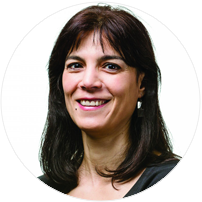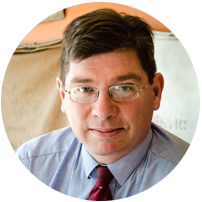Horizon 2020: Canadian researchers lend expertise in migration issues
SSHRC and the Fonds de recherche du Québec – Société et culture (FRQSC) are pleased to announce the three successful Canadian research teams of the 2018-19 Horizon 2020 Migration Call.
Over the next three years, the teams will address critical migration issues around the globe. Topics include:
- assessing how efficient international protection systems are in today’s turbulent context;
- understanding migration patterns and developing scenarios to support better European migration policies; and
- how best to respond to the needs of vulnerable migrants.
Canada is contributing nearly $700,000 to support these three projects. This includes $591,289 for the three projects through SSHRC and $100,000 for two of the projects through FRQSC. Immigration, Refugees and Citizenship Canada is also looking to engage with the researchers to further expand its research partnerships and disseminate research knowledge. Its goal is to strengthen and promote the socio-economic evidence-based research that supports public policy and programming.
Contact information
Michelle Paradis
Communications Advisor
Social Sciences and Humanities Research Council
313-549-6141
medias@sshrc-crsh.gc.ca
Camille Delsart
Program manager
Fonds de recherche du Québec – Societé et Culture
514-873-2114, ext. 1290
camille.delsart@frq.gouv.qc.ca
Award recipients of 2018-19 Horizon 2020 Migration Call

PROTECT the Right to International Protection. A Pendulum between Globalization and Nativization?
Idil Atak, Ryerson University
Project description
The PROTECT research project examines ways to uphold and further advance international protection systems for migrants in the context of conflicting political visions. Researchers will study the impacts of the United Nations’ Global Refugee Compact and Global Migration Compact on the international refugee protection system. Led by the University of Bergen in Norway, the project compares the refugee situation in the European Union, Canada and South Africa. It is conducted by an international consortium of 11 universities.
Idil Atak, an associate professor of criminology at Ryerson University, leads the Canada-related portions of the project. She is contributing to legal and doctrinal analyses to discover ways of constructing the legal relationships between the UN Global Compacts, the systems of human rights protection on the global and regional levels, and the 1951 Refugee Convention.

QuantMig: Quantifying Migration Scenarios for Better Policy
Alain P. Bélanger, Institut national de recherche scientifique
Project description
Part of a larger research project with FRQSC and the European Research Council, QuantMig aims to produce comprehensive, multi-perspective quantitative migration scenarios to support better European migration policies. Their research methods are based on the cutting-edge developments in conceptualizing, explaining, estimating and forecasting migration. Accurate tracking of migration patterns from origin, destination and transit countries will feed into this comprehensive knowledge base, in line with current European policy priorities. In addition to its Canadian partner, QuantMig brings together migration specialists from seven European universities and research institutes.
Alain Bélanger, a specialist of microsimulation and demographic projections, leads the Canadian portion. His contributions will help develop a microsimulation projection model of the future European population. The collaboration will also provide opportunities for comparative studies with Canada and the United States.



Vulnerabilities Under the Global Protection Regime (VULNER)
How Does the Law Assess, Address, Shape and Produce the Vulnerabilities of the Protection Seekers?
Delphine Nakache, University of Ottawa, François Crépeau, McGill University, and Dagmar Soennecken, York University
Project description
Legal and policy instruments at global and European level increasingly emphasize the need to address the specific needs of vulnerable migrants. But what does it mean to be vulnerable? The VULNER project aims to investigate this question through field studies in selected refugee settlements. The project focuses on migrants seeking protection in Europe (Belgium, Germany, Italy, Norway), North America (Canada), the Middle East (Lebanon) and Africa (Uganda and South Africa).
Delphine Nakache, an associate professor in the Faculty of Law (Common Law) at the University of Ottawa, is leading the research on Canada. She will have support from co-investigators François Crépeau, from McGill University, and Dagmar Soennecken, from York University, as well as research coordinator Midori Kaga, a PhD student at the University of Ottawa. The research is also conducted in partnership with co-investigator Maya Shuayb (Lebanese American University) and collaborators James Milner (Carleton University) and Nathan Benson (Refugee Hub, University of Ottawa).
Crépeau will lead the research on stateless persons and on the Safe Third Country Agreement (STCA) between the United States and Canada. Soennecken will lead the research on resettlement in Canada. The research team will conduct key informant and migrant participants interviews in Canada, in collaboration with community partners from several Canadian provinces.
- Date modified: